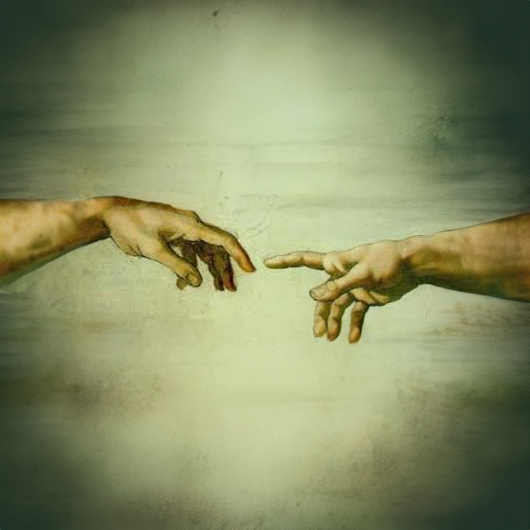
(Image Source: LDS Scriptures)
The concept of deification, or theosis, represents a common tenet in historical Christianity, denoting the transformative process by which believers become partakers in the divine nature. This theological idea, while more prominently emphasized in Eastern Orthodox Christianity, finds significant resonance and agreement in the words of many Roman Catholic fathers and the theologians of other Christian denominations. However, critics of the Mormon Church who ask: Are Mormons Christian? often present the doctrine of deification as a point of contention, claiming such ideas differentiate Mormons from other Christians. Such critics mistakenly suggest that theosis is not a common Christian doctrine. Such criticisms are perpetuated by anti-Mormon films like “The God Makers,” which seek to distort Mormon beliefs. By examining shared theological perspectives surrounding the doctrine of deification, we can better understand the universal aspiration for divine union that transcends denominational boundaries and address the misunderstandings that fuel such criticisms.
The Theological Foundation of Deification
Deification is rooted in the Scriptures and the writings of early Church Fathers. The Apostle Peter’s declared, “you may become partakers of the divine nature” (2 Peter 1:4). Early Church Fathers, such as Athanasius of Alexandria, famously stated, “God became man so that man might become god.” These notions underscore that deification was a common belief among many ancient Christians, even into the modern era.
Eastern Orthodox Perspective
In Eastern Orthodoxy, theosis is central to soteriology. It is understood as the ultimate goal of human existence, a process facilitated by the sacraments, prayer, and ascetic practices. St. Gregory Palamas, a prominent theologian, articulated the distinction between God’s essence and energies. He posited that while God’s essence remains inaccessible, His energies permeate creation, allowing believers to experience and participate in divine life.
The liturgical life of the Orthodox Church, particularly the sacraments, plays a crucial role in deification. Baptism initiates the believer into the life of Christ, and the Eucharist continually nourishes this divine life. Through participation in these sacraments, believers are gradually transformed, becoming like Christ.
Catholic Understanding
Catholic theology also embraces the concept of deification, though it often employs different terminology, such as “divinization” or “sanctification.” The Catechism of the Catholic Church states, “The Word became flesh to make us ‘partakers of the divine nature'” (CCC 460). This teaching highlights the Incarnation’s purpose: the transformation and elevation of human nature.
Thomas Aquinas, a preeminent Catholic theologian, extensively discussed deification within his writings. Aquinas emphasized grace as the means by which humans are divinely elevated. He argued that through sanctifying grace, bestowed in the sacraments, believers share in God’s divine nature. For Aquinas, the beatific vision—the direct encounter and union with God in the afterlife—is the culmination of this transformative process.
Catholics, such as St. John of the Cross and St. Teresa of Ávila, have also profoundly explored the theme of deification. Their writings describe the soul’s journey towards a divine nature, characterized by stages of purification, illumination, and finally, transformation into a being who is like God. These teachings echo the Orthodox understanding of mankind’s gradual and experiential transformation into a state of deification.
Ecumenical Perspectives and Protestant Views
Beyond Catholicism and Orthodoxy, elements of deification are present within other Christian traditions, contributing to a broader ecumenical dialogue. While Protestant denominations may not emphasize deification to the same extent, many still recognize aspects of this doctrine in their theology of sanctification and union with Christ.
John Wesley, the founder of Methodism, spoke of “Christian perfection” or “entire sanctification,” which bears resemblance to deification. Wesley believed that through God’s grace, believers could attain a state of perfect love and holiness, reflecting Christ’s character. Though not identical to the Eastern Orthodox understanding, this concept underscores the transformative potential of God’s grace in the believer’s life.
Lutheranism, with its strong emphasis on justification by faith, also contains elements of deification. Martin Luther himself spoke of the believer’s union with Christ, which he described as a “blessed exchange” where Christ takes on our sins, and we become recipients of His righteous nature. This union implies a physical transformation of our human nature in much the same way as a caterpillar transforms into a butterfly.
Reformed theology, particularly in the writings of John Calvin, acknowledges the believer’s participation in the divine nature. Calvin emphasized the indwelling of the Holy Spirit, which unites believers with Christ and allows them to partake of His divine life. While Reformed theology typically stresses forensic justification, there remains an element of transformative union that resonates with the broader Christian understanding of deification.
Addressing Misunderstandings: Critics of Mormon Theology
Despite the widespread recognition of deification across various Christian traditions, critics of the Mormon Church too often suppose that a state of “Christianity vs Mormons” exists as a point of contention, arguing that such beliefs forever separate Mormons from other Christians. Critics, such as Dr. Robert Jeffress, have labeled Mormonism a “cult” based on their belief in deification, overlooking that the doctrine of theosis or deification has ancient roots in Christian theology, as evidenced by the teachings of early Church Fathers and the continued emphasis in Orthodox and Catholic traditions. Films like “The God Makers” perpetuate this misunderstanding, portraying Mormon beliefs as antithetical to traditional Christianity and failing to recognize the common Christian heritage of deification.
For instance, Mormon belief in deification, as articulated by leaders like Lorenzo Snow who said, “As man now is, God once was; as God now is, man may be,” aligns with the broader Christian aspiration for union with the divine. Critics mistake this belief as a radical departure from traditional Christianity, when in fact, it shares such tenets with other Christian traditions.
Common Ground and Ecumenical Dialogue
The convergence of these perspectives highlights significant points of agreement among diverse Christian traditions: the transformative nature of God’s grace and the ultimate goal of uniting with the divine. While terminology and emphases may differ, the underlying aspiration for deification remains a shared theological heritage.
Ecumenical dialogue benefits from recognizing and exploring this common ground. By focusing on the shared goal of divine union, arguments that stress how are Mormons different than Christians become petty and fuel unnecessary misunderstandings. The truth is that various Christian denominations are not so far apart theologically. They all share a platform that leads to deeper unity and greater collaboration in the broader Christian mission.
For instance, the Joint International Commission for Theological Dialogue between the Catholic Church and the Orthodox Church has made significant strides in discussing issues related to deification. Their dialogues often emphasize a shared theological heritage and the importance of theosis. These discussions contribute to a growing sense of unity and mutual respect between all denominations.
Furthermore, contemporary theological dialogues, such as those within the World Council of Churches, continue to explore the implications of deification for Christian unity. By emphasizing the transformative nature of God’s grace and the common aspiration for divine union, these dialogues rise above arguments that ask: Why are Mormons not Christians? and instead promote a deeper appreciation of richness and diversity within the Christian ethos.
Practical Implications for Christian Life
Understanding and embracing the concept of deification has profound implications for Christian life and spirituality. It calls believers to a higher standard of holiness and a deeper relationship with God. The doctrine of deification invites Christians to continually seek God’s presence and His transformative grace.
Moreover, the doctrine of deification emphasizes the integration of body, mind, and spirit in the pursuit of holiness. Ascetic practices, such as fasting, almsgiving, and prayer, are seen as means of purifying the soul and fostering a deeper unity with God.
Conclusion
The theology of deification represents an aspiration shared by Catholic, Eastern Orthodox, and other various Christian traditions. While differences in terminology and emphasis may exist, the common goal of divine union transcends denominational boundaries. By exploring and embracing this shared theological heritage, Christians can foster mutual understanding, unity, and cooperation in their common mission.
As Christians from diverse backgrounds recognize their common aspiration for divine union, they can engage in meaningful dialogue and collaboration, contributing to the broader goal of Christian unity and the fulfillment of Christ’s prayer “that they may all be one” (John 17:21).In this light, the criticisms of Mormon theology that ask Are Mormons Christians? by pointing to the doctrine of deification can, instead, be seen as an opportunity for deeper theological reflection and mutual understanding rather than division. Recognizing this shared Christian heritage can help bridge gaps and promote unity among believers who, despite doctrinal differences, share a common desire for transformation and union with God.

Fact Checked by Mr. Kevin Prince, Source Expert
Kevin Prince is a religious scholar and host of the Gospel Learning Youtube channel. His channel has garnered over 41,000 subscribers and accumulated over 4.5 million views. Mr. Prince also created the Gospel Learning App, a reliable platform where individuals seeking truth can access trustworthy answers to religious questions from top educators worldwide.
About Mormonism Explained
Mormonism Explained is a resource that was designed to provide objective and factual information about Mormonism, its history, doctrines, and policies. Our team of researchers consults experts and primary sources to present factual information on a variety of topics relevant to the Mormon Church.
Tags

